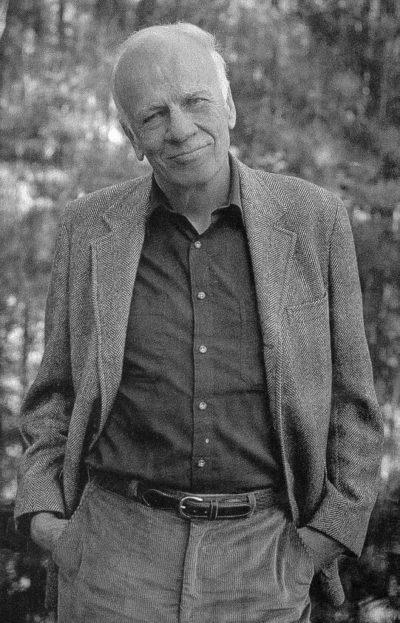Walker Percy (Walker Percy)

Walker Percy was born in 1916 in Birmingham, Alabama, as the first of three boys to LeRoy Pratt Percy and Martha Susan Phinizy. His father’s Mississippi Protestant family included his great-uncle LeRoy Percy, a U.S. Senator, and LeRoy Pope Percy, a Civil War hero. In February 1917, Percy’s grandfather committed suicide. This seemed to set a family pattern of emotional struggle and deaths that would haunt Percy throughout his life. In 1929, when Percy was 13, his father committed suicide. His mother took the family to live at her own mother’s home in Athens, Georgia. Two years later, Percy’s mother died when she drove a car off a country bridge and into Deer Creek near Leland, Mississippi, where they were visiting. Percy regarded this death as another suicide. Walker and his two younger brothers, LeRoy (Roy) and Phinizy (Phin), were taken in by their first cousin once removed William Alexander Percy, a bachelor lawyer and poet in Greenville, Mississippi. Walker Percy was raised as an agnostic, though he was nominally affiliated with a theologically liberal Presbyterian church. William Percy introduced him to many writers and poets, and to a neighboring youth his own age, Shelby Foote, who became his lifelong best friend. As young men, Percy and Foote decided to pay their respects to William Faulkner by visiting him in Oxford, Mississippi. But when they arrived at his home, Percy was so in awe of the literary giant that he could not bring himself to speak to him. He later recounted how he could only sit in the car and watch while Foote and Faulkner had a lively conversation on the porch.
Walker Percy attended the University of North Carolina at Chapel Hill, where he joined the Xi chapter of Sigma Alpha Epsilon fraternity. He received a medical degree from Columbia University in New York City in 1941. There he had psychotherapy to deal with the legacy of suicides and depression in his family. After contracting tuberculosis while performing an autopsy at Bellevue Hospital Center, Percy spent several years recuperating at the Trudeau Sanitorium in Saranac Lake, New York. At the time, there was no known treatment for TB other than rest. During this period, Percy read the works of the Danish existentialist writer Søren Kierkegaard and the Russian novelist Fyodor Dostoevsky. He began to question the ability of science to explain the basic mysteries of human existence. He was influenced by the example of one of his college roommates, and began to rise daily at dawn and go to Mass. Percy’s literary career as a “Catholic writer” began in 1956, with an essay about race in the Catholic magazine Commonweal. The essay, “Stoicism in the South,” condemned Southern segregation and demanded a larger role for Christian thought in Southern life.
After many years of writing and rewriting in collaboration with editor Stanley Kauffmann, Percy published his first novel, The Moviegoer, in 1961. Percy later wrote of the novel that it was the story of “a young man who had all the advantages of a cultivated old-line southern family: a feel for science and art, a liking for girls, sports cars, and the ordinary things of the culture, but who nevertheless feels himself quite alienated from both worlds, the old South and the new America.” Subsequent works included The Last Gentleman (1966), Love in the Ruins (1971), Lancelot (1977), The Second Coming (1980), and The Thanatos Syndrome in 1987. Percy also published a number of non-fiction works exploring his interests in semiotics and Existentialism, the most popular work being Lost in the Cosmos. Walker Percy taught and mentored younger writers. While teaching at Loyola University of New Orleans, he was instrumental in getting John Kennedy Toole’s novel A Confederacy of Dunces published in 1980. This was more than a decade after Toole committed suicide, despondent about being unable to get recognition for his book. Set in New Orleans, it won the Pulitzer Prize for fiction, which was posthumously awarded to Toole.[14] In 1987 Percy, along with 21 other noted authors, met in Chattanooga, Tennessee to create the Fellowship of Southern Writers.
Born
- May, 28, 1916
- USA
- Birmingham, Alabama
Died
- May, 10, 1990
- USA
- Covington, Louisiana
Cause of Death
- prostate cancer
Cemetery
- Saint Joseph Abbey Cemetery
- Covington, Louisiana
- USA



